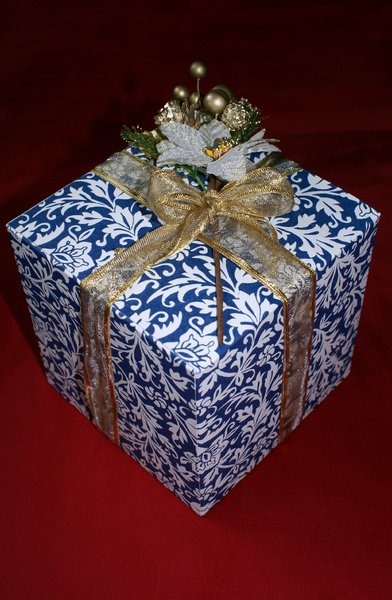In 2003, the boxer filed for bankruptcy after his exorbitant spending, multiple trials, and bad investments caught up with him. To curb expenses, the boxer also sold his upscale mansion in Farmington, Connecticut, to rapper 50 Cent for a little more than $4 million. He crashed on friends’ couches and slept in shelters until he landed in Phoenix, where he bought a home in 2005.
Later, when Ippo returned to the Kamogawa gym after Kamogawa banned him for one month, he passed both tests required to return, and Takamura lifted him up in celebration. Takamura went to Yamaguchi and his visit led him to be thrown out of the window naked and he landed on Kamogawa who was about to visit her. Takamura ran away after hearing police sirens. Later, Takamura went to the Kōrakuen Hall with Ippo to watch Itagaki, Kimura, and Aoki’s matches where Itagaki won by decision, Kimura’s match ended in a draw, and Aoki won by knockout. Afterwards, Ippo expressed his desire to show off his new Dempsey Roll to Kamogawa in his next match. Takamura mentioned that if Kamogawa likes it then it is good, but he wanted Ippo to not disappoint him. Takamura began training for his WBA and WBC middleweight title defence.
 That tattoo, of course, has become a piece of popular culture. While Tyson was no stranger to bizarre choices—he owned tigers, tried to fight a zoo’s gorilla, and bit Evander Holyfield’s ear, among other things—his body art took on a life of its own. That tattoo even played a role in The Hangover: Part II, which, in turn, resulted in a lawsuit over the design’s ownership.
That tattoo, of course, has become a piece of popular culture. While Tyson was no stranger to bizarre choices—he owned tigers, tried to fight a zoo’s gorilla, and bit Evander Holyfield’s ear, among other things—his body art took on a life of its own. That tattoo even played a role in The Hangover: Part II, which, in turn, resulted in a lawsuit over the design’s ownership.
In 2014, though, Tyson finally fessed up about the real reason for his tattoo. As Sportcasting recounts, Tyson said of his dark period, “I just hated myself… I literally wanted to deface myself.” Capricious though it was, the tattoo was also his first step toward making positive choices.
The Hangover Part II grossed $254.5 million in North America and $332.3 million in other territories for a worldwide gross of $586.8 million, against a budget of $80 million. It was the eighth-highest-grossing film of 2011. In its opening weekend, it earned $177.8 million, which was the highest-grossing worldwide opening for a comedy film. On the weekend of June 17–19, 2011, it out-grossed its predecessor in worldwide earnings to become the highest-grossing R-rated comedy of all time.
In the interview, Desiree also hinted at the aforementioned lawsuit in the interview. In 1995, Mike settled the lawsuit against him. The boxer’s lawyer refused to reveal how much money, if any, was involved in the settlement. Since then, Desiree has disappeared from the limelight. “For nearly four years she has attempted to pick up the pieces of her life and move on. This has not been easy to do. The trauma of the rape has had a profound and lasting impact on her life,” Desiree’s attorney Michael Weisman told Los Angeles Times in 1995.
On June 30, 2007, Holyfield defeated Lou Savarese, knocking the bigger and heavier Savarese down in the fourth and again in the ninth round, en route to a unanimous decision win. This was Holyfield’s fourth win in ten months, two of them by KO. This victory finally set the stage for Holyfield’s title fight against Sultan Ibragimov, for the WBO Heavyweight title.
The first teaser trailer was released online in February 2011. The first full trailer was released in April 2011. Later in the same month Warner Bros. pulled the trailer from theaters for violating an MPAA rule stating that films can only trailer before similarly rated movies. The trailer for box the R-rated comedy was being promoted at screenings for the PG-13-rated Source Code against MPAA regulations. Warner Bros. released a statement saying, “In our haste to meet the placement schedule for this trailer, we failed to properly vet the final version with the MPAA. We acted immediately to correct the mistake and removed the trailer from screens”.
In April 2009, Warner Bros. hired Todd Phillips, who directed The Hangover, to write a sequel with Scot Armstrong. The deal, reached two months before the release of The Hangover in June 2009, came as result of The Hangover’s positive screen tests, and a trailer which drew a strong reaction from audiences at ShoWest. The writers from the first film, Scott Moore and Jon Lucas, decided not to come back to write the sequel because, according to Lucas, “they were done with that story…and didn’t want to just write Hangover sequels their whole careers.”
Main events typically grab the spotlight, dictating the schedule and pushing preceding matches to earlier slots. This means our featured fight’s kickoff will adjust based on how quickly or slowly earlier bouts conclude.
The soundtrack was released on May 24, 2011, by WaterTower Music. The soundtrack contains 12 songs from the film, along with eight dialogue clips from the film. Though the song “Monster”, by Kanye West featuring Jay-Z, Rick Ross, Bon Iver, and Nicki Minaj, was featured in the film, it does not appear on the soundtrack.

